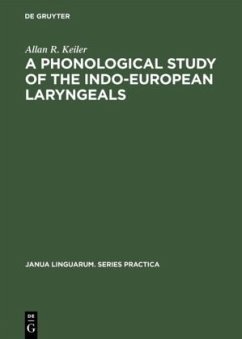
Multiple Preverbs in Ancient Indo-European Languages
A comparative study on Vedic, Homeric Greek, Old Church Slavic, and Old Irish
Versandkostenfrei!
Versandfertig in 2-4 Wochen
88,00 €
inkl. MwSt.
Weitere Ausgaben:

PAYBACK Punkte
0 °P sammeln!
The book investigates multiple preverbs (PVs) in some ancient IE languages (Vedic, Homeric Greek, Old Church Slavic, and Old Irish). After an introduction, it opens with the theoretical framework and a typologically-oriented overview of PVs. It then gives quantitative data about multiple PV composites and carries out philological, formal, semantic, and syntactic analyses on them. The comparison among these languages suggests that a process of accumulation lies behind multiple PV composites. Also, PV ordering is explained by different factors: semantic solidarity between PVs and verbs PVs' tend...
The book investigates multiple preverbs (PVs) in some ancient IE languages (Vedic, Homeric Greek, Old Church Slavic, and Old Irish). After an introduction, it opens with the theoretical framework and a typologically-oriented overview of PVs. It then gives quantitative data about multiple PV composites and carries out philological, formal, semantic, and syntactic analyses on them. The comparison among these languages suggests that a process of accumulation lies behind multiple PV composites. Also, PV ordering is explained by different factors: semantic solidarity between PVs and verbs PVs' tendency to be specified by event participants, PVs' etymologies, influence from other languages. The book also contributes to casting light on the reasons for PVs' grammaticalization and lexicalization. These are two distinct reanalyses triggered by the same factor, i.e. the mentioned semantic solidarity, which makes PVs be felt as redundant. They are thus reassigned salient pieces of information as actional markers (grammaticalization) or reinterpreted as part of the verb (lexicalization).
Dieser Artikel kann nur an eine deutsche Lieferadresse ausgeliefert werden.













